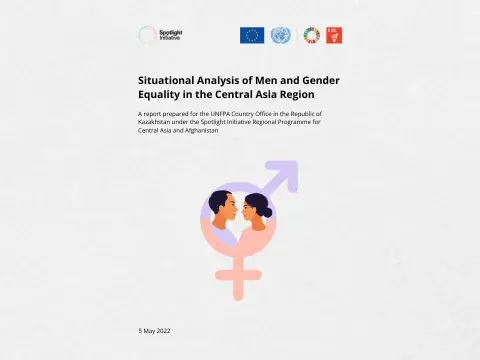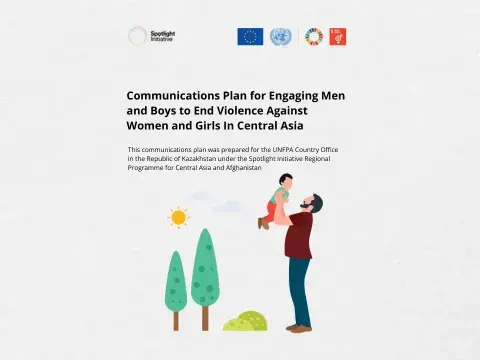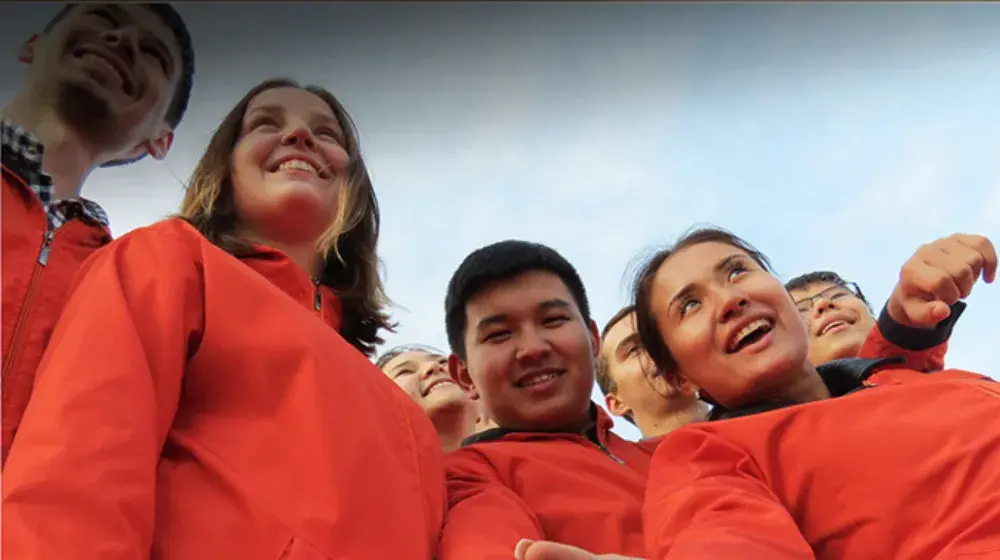Context:
Reports from the media, civil society and international organizations show that the COVID-19 lockdown worldwide has further exacerbated gender inequalities and incidents of gender-based violence. In Kazakhstan, one of the hotlines set up for survivors of domestic violence reported a 50% increase in the calls in the first half of April alone as compared to February 2020. Already high levels of violence against women are being compounded by isolation, job and income losses, family and societal stresses. Global research indicates that these factors are limiting women’s ability to temporarily escape abusive partners, access emergency and life-saving services.
A study conducted prior to COVID-19 pandemic showed that 17% of ever-partnered women reported experiencing violence from their intimate partner. Almost a quarter (24%) of women who had experienced physical, sexual or emotional violence suffered from all three forms of partner violence at some point in their lives. In 2017 out of all crimes committed against women and reported in Kazakhstan, 98% were rapes.
Vulnerable groups, such as people with disabilities, are at an even higher risk of gender-based violence. According to data on people with disabilities, about half of them experienced various types of violence in their families, regardless of gender or age.
Pre-existing and active interventions with UK Government Programme funding:
In order to address some of these challenges, UNFPA Kazakhstan worked alongside the National Commission on Women, Family and Demographic Policy under the President of the Republic of Kazakhstan in developing Standard Operating Procedures (SOPs) to be used by the police, social and medical workers when helping GBV victims and survivors. In 2019, as part of the UK Government Programme funding UNFPA carried out in-depth interviews with 86 people with disabilities and several focus group discussions with service providers in Turkestan region and Shymkent city to inform the revision of SOPs to incorporate the needs of people with disabilities.

The UK Government Programme funding also facilitated a series of discussions with national partners among them the National Commission on Women, Family and Demographic Policy, Ministries, local government, civil society, leading religious organizations and others on the prevention and response to gender-based violence with a special emphasis on the rights of women with disabilities, also in response to recommendations from the Convention on the Elimination of All Forms of Discrimination Against Women (CEDAW).
The Programme also supported the development of a protocol for health service providers dealing with gender-based violence. The protocol was endorsed by the Ministry of Health of Kazakhstan (Joint Commission on Quality of Medical Services) following a rigorous review process in April 2020. While more investment is needed to train health service providers on the practical application of the protocol, its approval is very timely given the increase in GBV cases during the pandemic.
COVID-19 and GBV:
With the COVID-19 pandemic spreading around the world, when movement is restricted and protection systems are weakened, women and girls are at an even higher risk of violence and abuse. There is now a greater need for prevention, risk mitigation and response services, at the time when these services are reduced and resources are being diverted to respond to the overall health crisis. Continued technical support is now vital to ensure that there is national capacity for GBV prevention and clinical management care in such emergency as COVID-19.

Following the declaration of the state of emergency due to COVID-19, UNFPA and the National Commission agreed on the need to assess the impact of the lockdown on the most vulnerable to inform and adjust GBV responses by national partners. UNFPA and the National Commission carried out follow-up in-depth interviews with the same group of persons with disabilities, who were interviewed in 2019 with the UK Government Programme funding. Among those interviewed: 20 were visually impaired, 18 were hearing impaired, 18 had a disability due to chronic diseases and 20 had a physical disability. Out of a total of 76 interviewees, 29 were men (38%) and 47 women (62%).
Key findings:
- 38% of those surveyed reported that their relationships with family members had deteriorated during the lockdown.
- 3 out of 4 people surveyed did not know or did not have an opportunity to turn for help to the police, psycho-social services, medical or other institutions.
- About 1 in 4 did not want to turn for help in the situation of domestic violence because they thought it was shameful and that they would be judged. Furthermore, their dependency on other family members engendered fear that violence might get worse if they turned for help.
The story of Indira, recently published on the local webpage and UNFPA’s regional platform, is a compelling evidence of this situation.
The Rapid Assessment can be found on the UNFPA Kazakhstan website.




